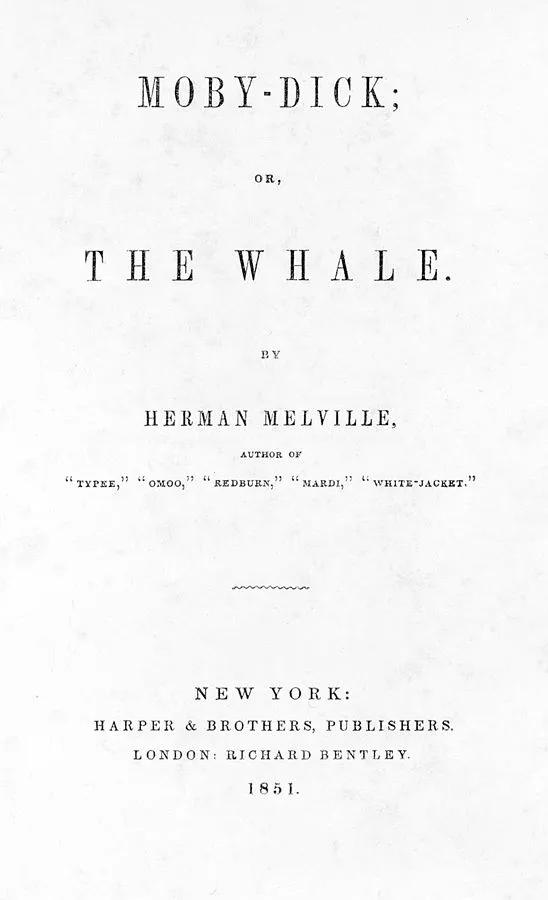Why Does Moby-Dick (Sometimes) Have a Hyphen?
The hunt for the true story behind Melville’s hyphen is as mysterious as the famous white whale
/https://tf-cmsv2-smithsonianmag-media.s3.amazonaws.com/filer/b6/cd/b6cd28c5-7e10-4956-8c77-7aafbfcad3a8/be039432.jpg)
It took Herman Melville years of whaling, writing and working to create Moby-Dick, a book that managed to make its way into the American canon despite tepid reviews and miserable initial sales. But questions about the book’s meaning and the symbolism of the its white whale pale in comparison to a debate that has endured since the book’s publication: What’s the deal with the title’s hyphen?
The controversy dates back to the composition of the book, which was simply called The Whale before publication. Melville based his white whale in part on a real-life deadly albino whale named Mocha Dick.
When the book was published in England, it bore that straightforward title. In a historical note to a scholarly edition of the book, Melville scholar G. Thomas Tanselle writes that Melville’s brother, Allan, made a last-minute change to the title of the American edition. “[Melville] has determined upon a new title,” his brother wrote. “It is thought here that the new title will be a better selling title…Moby-Dick is a legitimate title for the book.”

The American edition went to press, hyphen intact, despite the fact that the whale within was only referred to with a hyphen one time. Hyphenated titles would have been familiar to Victorian-era readers, who were used to “fairy-tales” and “year-books.” Even Melville enjoyed a good hyphen now and then, as the title of his book White-Jacket proves. But it’s still unclear whether Melville, who didn’t use a hyphen inside the book, chose a hyphen for the book’s title or whether his brother punctuated the title incorrectly.
Whether you chalk it up to typographical error, long-obsolete custom or authorial intention, the hunt for the true story behind Moby-Dick’s hyphen continues. These days, most scholars simply refer to the book with a hyphen and the whale without.
But not everyone prefers to hyphenate: A quick look at this bookshelf filled with Moby-Dicks shows that the hyphen is anything but standard. The discrepancy even extends to the silver screen. If you go to see In the Heart of the Sea this weekend, you’ll see plenty of sailors, suffering and even a whale that inspired Melville’s story—but there won’t be a hyphen in sight.
(h/t patell.org, TYWKIWDBI)
Read more about the real-life horror that inspired the whale and how Nantucket became the whale capital of the world.
/https://tf-cmsv2-smithsonianmag-media.s3.amazonaws.com/accounts/headshot/erin.png)
/https://tf-cmsv2-smithsonianmag-media.s3.amazonaws.com/accounts/headshot/erin.png)